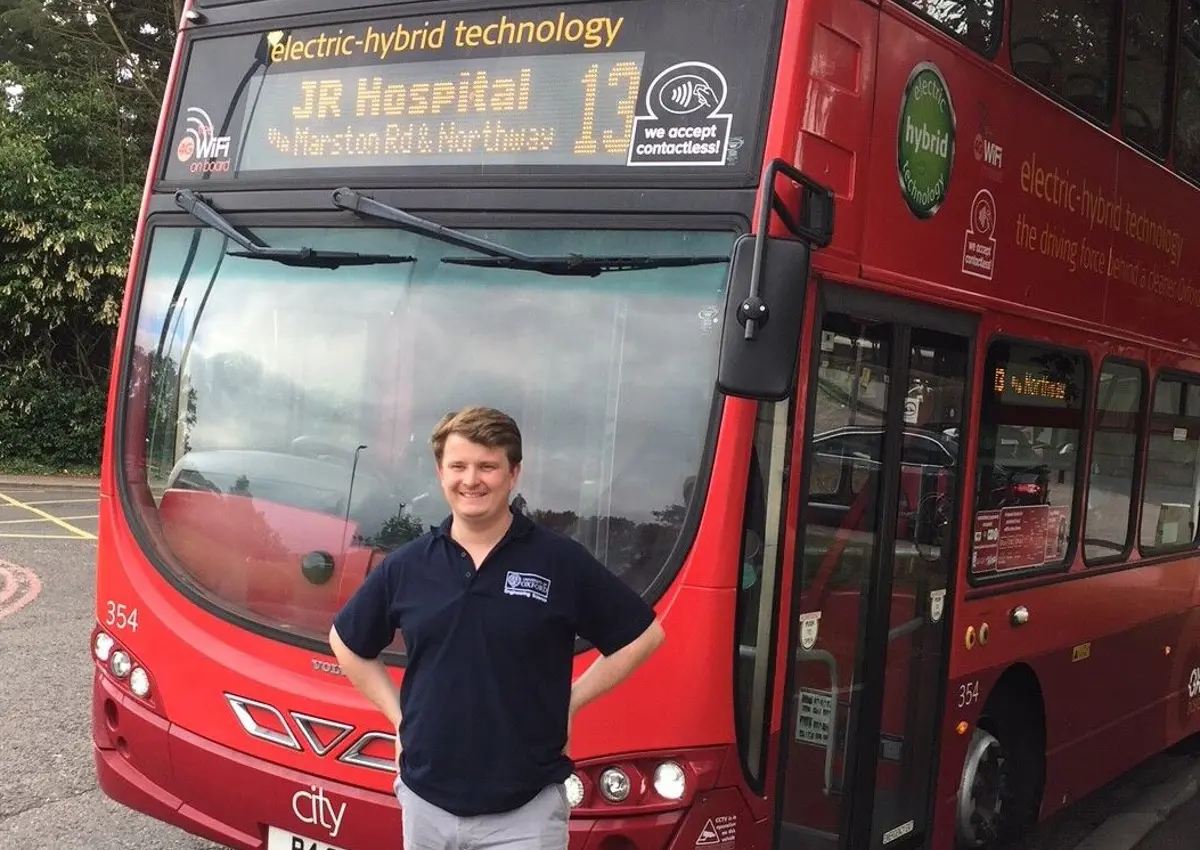18 Jun 2018
Department partners with Oxford Bus Company to pinpoint 'pollution hotspots' in Oxford
Researchers from the Department of Engineering Science are collaborating with the Oxford Bus Company to conduct a detailed emissions study on buses across the city

Dr Felix Leach, Postdoctoral Research Assistant at the Department of Engineering Science, has been measuring NOx emissions on buses on key routes operating within the city. NOx – oxides of Nitrogen - is formed when combustion occurs in the presence of nitrogen in areas of high traffic. Using highly accurate Global Positioning Systems (GPS), the emissions measurements can identify exactly where NOx is emitted to within 30cm.
NOx emissions are a well-known pollutant which is harmful to human health, particularly for existing heart and lung conditions. NOx levels in Oxford vary significantly, with some areas having high levels. The study will help establish exactly where in Oxford NOx is being produced and whether any changes can be made to reduce levels. This could include better road layouts, revised traffic calming and other measures to avoid buses staying longer than is necessary in one place.
Dr Leach says: “I am delighted to be collaborating with Oxford Bus Company, Oxford City Council, and Cambustion on this very significant and world leading study of NOx emissions in the city centre and its surroundings. Oxford Bus Company’s visionary support in enabling us to perform detailed measurements on buses in service is unique".
"The accurate real world data that we have collected is allowing our research team to identify the precise locations and causes of NOx emissions in the city – be they due to the placement of a speed-bump or a set of traffic lights. The understanding gained from this data will enable the development of more effective operating strategies for NOx reduction, which should lead to improved air quality for everyone.”
Under Oxford City Council and Oxfordshire County Council proposals the city centre could become the world’s first Zero Emissions Zone, which would see all polluting vehicles phased out from 2020. As vehicle technology develops it is proposed the Zero Emissions Zone will extend to cover all non-electric vehicles across the city centre by 2035.
Phil Southall, Oxford Bus Company Managing Director, says, “We have collaborated with the University of Oxford to really establish where the pollution hotpots are in key areas of the City and what measures can be utilised to reduce them in conjunction with and in addition to the Zero Emission Zone. We believe this forensic analysis will be of great benefit to key stakeholders in shaping the future of the city”.
Find out more in the Oxford Mail article on Dr Leach's study.





